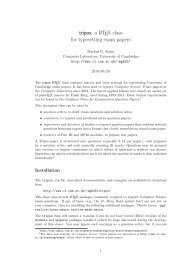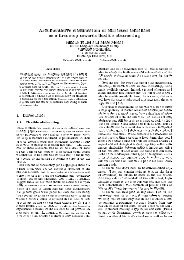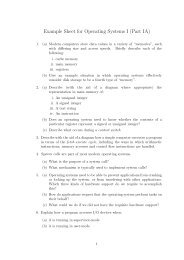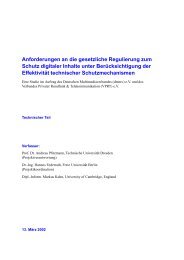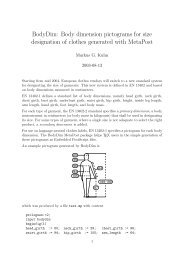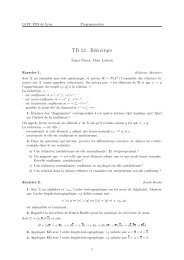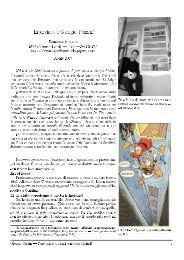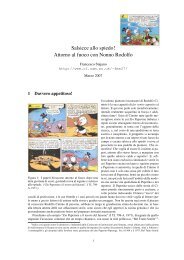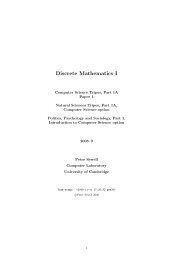Radical innovation: crossing knowledge boundaries with ...
Radical innovation: crossing knowledge boundaries with ...
Radical innovation: crossing knowledge boundaries with ...
Create successful ePaper yourself
Turn your PDF publications into a flip-book with our unique Google optimized e-Paper software.
<strong>Radical</strong> <strong>innovation</strong>: <strong>crossing</strong> <strong>knowledge</strong><br />
<strong>boundaries</strong> <strong>with</strong> interdisciplinary teams<br />
Alan F. Blackwell<br />
Computer Laboratory/Crucible Network, University of Cambridge<br />
Lee Wilson<br />
Department of Social Anthropology, University of Cambridge<br />
Alice Street<br />
School of Global Studies, University of Sussex<br />
Charles Boulton<br />
Innovation Coaching Ltd<br />
John Knell<br />
Intelligence Agency<br />
1.1. Executive summary<br />
Interdisciplinary <strong>innovation</strong> arises from the positive effects that result when stepping<br />
across the social <strong>boundaries</strong> that we structure <strong>knowledge</strong> by. Those <strong>boundaries</strong><br />
include academic disciplines, government departments, companies’ internal functions,<br />
companies and sectors, and the <strong>boundaries</strong> between these domains. In the <strong>knowledge</strong><br />
economy, it is often the case that the right <strong>knowledge</strong> to solve a problem is in a<br />
different place to the problem itself, so interdisciplinary <strong>innovation</strong> is an essential tool<br />
for the future. There are also many problems today that need more than one kind of<br />
<strong>knowledge</strong> to solve them, so interdisciplinary <strong>innovation</strong> is also an essential tool for<br />
the challenging problems of today.<br />
This report presents the results of an in-depth study into successful interdisciplinary<br />
<strong>innovation</strong>, focusing on the personal experiences of the people who achieve it. It is<br />
complementary to organisational research, and to research on the economic impact of<br />
<strong>innovation</strong>, but has primarily adopted perspectives and methods from other<br />
disciplines. Instead, this report has been developed by a team that is itself<br />
interdisciplinary, <strong>with</strong> a particular focus on anthropology, design research, and<br />
strategic policy. It also draws on reports from expert witnesses and invited<br />
commentators in many other fields.<br />
Interdisciplinary <strong>innovation</strong> is largely about team-work, where members of the team<br />
bring different skills and perspectives. But it is difficult to work <strong>with</strong> people whose<br />
<strong>knowledge</strong> is separated by <strong>boundaries</strong>. Boundaries cannot simply be ignored or<br />
removed. Knowledge must be bounded, in part because organisational <strong>knowledge</strong> is<br />
maintained by the groups of experts who develop and maintain the core <strong>knowledge</strong> of<br />
Innovation and Interdisciplinarity 3



